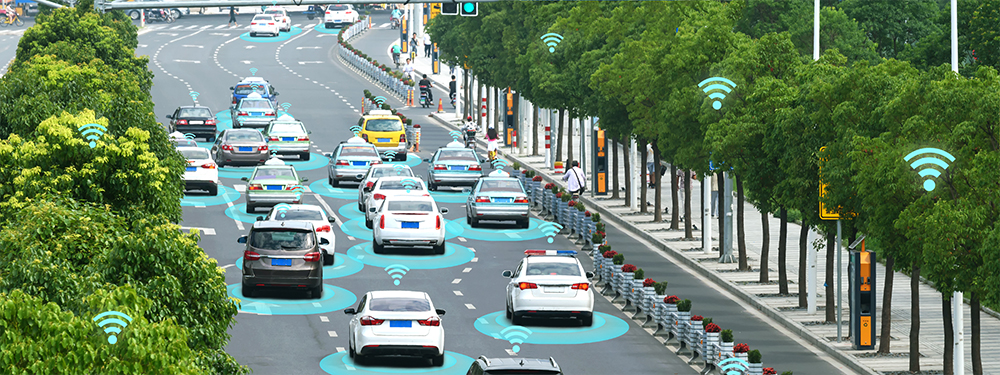Slow speeds, longer trip times, vehicular queueing, honking, and a lot of clutch and breaks, that’s the experience you have of traffic congestions. It’s always exhausting to experience traffic on the roads, which brings us to a very important question. Is this how it’s always going to be? Not certainly.

Traffic is a common experience in all the cities around the world, especially in metropolitans. In such cases, addressing vehicular traffic becomes extremely tough due to the high density of vehicles and lack of sensor nodes. This brings us to conclude that we definitely need an alternative technology for the existing one. And what better than the cloud can help us in bringing a solution.
How can the cloud help in cutting down traffic?
Cloud computing has a host of benefits. It focuses on cost savings, security, flexibility, mobility, increased collaboration, quality control, disaster recovery, loss prevention, automatic updates, competitive edge, and sustainability all at the same time. Such is the case when it comes to counting the effect of cloud computing on traffic management systems as well.
The technology used in cloud computing helps in bringing smarter solutions by the day. Talking about traffic management systems, cloud computing uses the geographic information system technology to bring together data collected by humans and machines. This helps in extracting features and validating the traffic flow using simulation modeling techniques that help in creating and analyzing digital prototypes of physical models to predict the performance of technologies in the real world.
The cloud infrastructure is then used to know the accurate flow of data, the density of vehicles that are collecting to form traffic congestions, queue time, etc. Such information is then directed to the base station where data is stored for analysis. Once the analysis is through, results are predicted using the reinforcement learning agent interaction mechanism that aims to yield maximized cumulative rewards.
The experience of having cloud computing for traffic management systems
With the cloud presenting its unique solutions, there will be a time where traffic management systems will be able to use data to quickly resolve traffic congestions. It would be as simple as getting a text to use a different route to avoid congestion. It will also be easy to quickly provide ambulances in case of accidents, etc.
The implementation of GPS-based interaction for video surveillance and broadcast systems is set to play a huge role in helping to bring quick and smart solutions.
Conclusion: AI and ML have the power to optimize real-time traffic data and can come up with solutions like using intelligent cloud virtual strips for queueing technique to reduce interference, designing a promising traffic management system to provide smooth traffic flow in non-recursive congestion situations, etc all of which only make traffic management systems better.
For more articles like ‘The impact of cloud computing on traffic management systems’, connect with us on Facebook, Twitter, and LinkedIn.